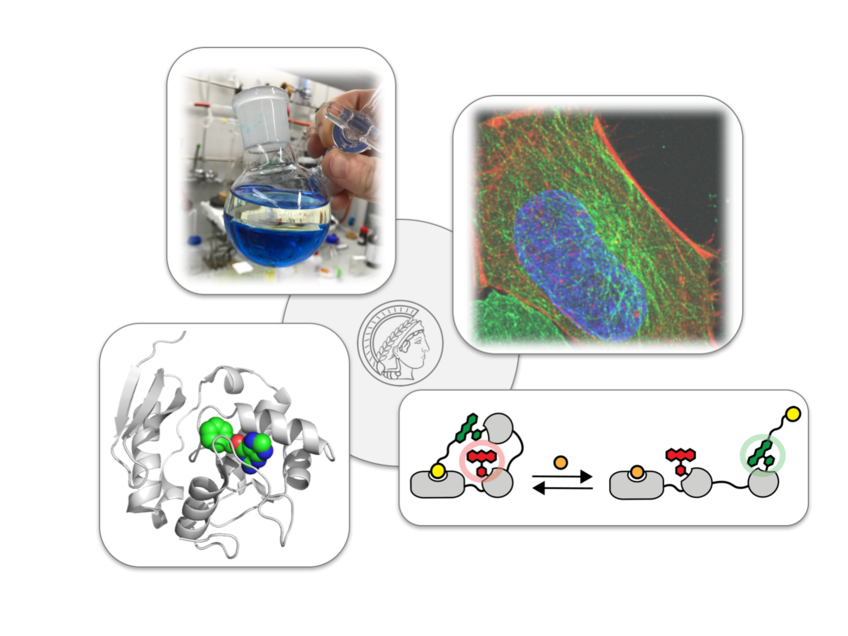
Department of Chemical Biology
The visualization and characterization of biologically relevant molecules and activities inside living cells continues to transform cell biology into a truly quantitative science. However, despite the spectacular achievements in some areas of cell biology, the majority of cellular processes still operate invisibly. Further progress will therefore depend increasingly on the development of new (fluorescent) sensors and chemical probes to target and characterize these activities. Our research addresses this need by developing and applying chemical approaches to observe and manipulate protein function in living cells. For example, we have introduced general methods for the covalent and specific labeling of fusion proteins with chemically diverse compounds that open up new ways of studying proteins (i.e. SNAP-tag, CLIP-tag and ACP-tag). We are pursuing the further development of such approaches and their application to biological problems that cannot be resolved by traditional approaches.
Currently, we are interested in the following topics:
- Development of semisynthetic fluorescent sensor proteins to measure key metabolites in living cells.
- Development and application of methods for characterizing protein-protein interactions.
- Generation of small molecules for controlling protein function in living cells.
- Engineering of new protein functions for applications in functional proteomics.
- Synthesis of new spectroscopic probes for applications in cell biology.
- Mechanistic studies on drug candidates.